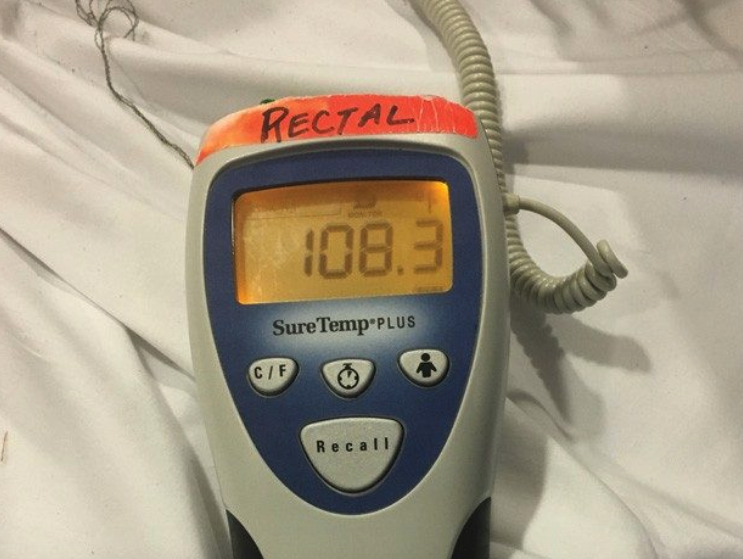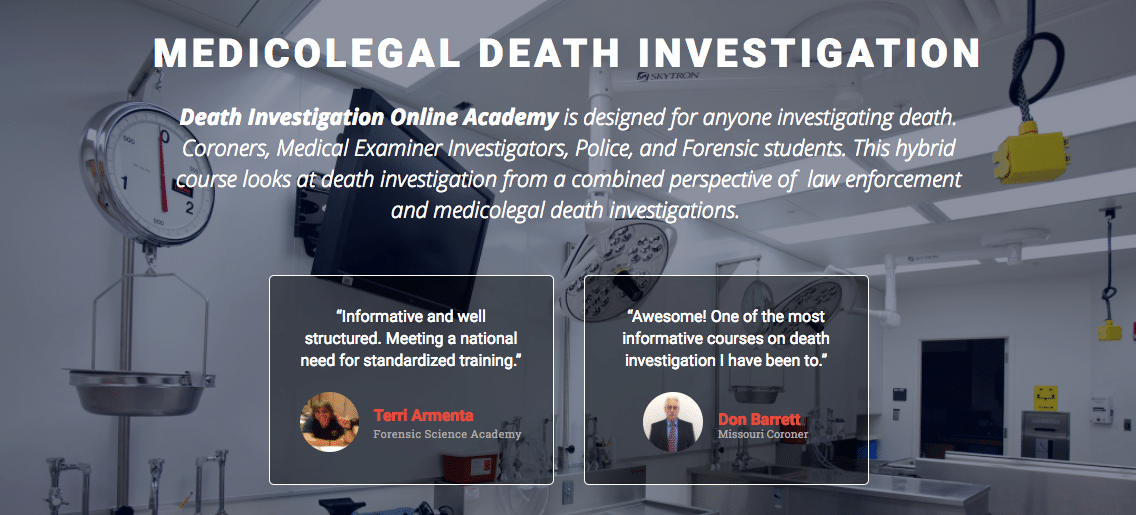 Hyperthermia is elevated body temperature due to failed thermoregulation that occurs when a body produces or absorbs more heat than it dissipates.
Hyperthermia is elevated body temperature due to failed thermoregulation that occurs when a body produces or absorbs more heat than it dissipates.
The determination of the cause of death from exposure to extreme temperatures is a diagnosis of exclusion. Because both clinical and autopsy findings are nonspecific, a thorough investigation of the background and scene, evaluation of temporally relevant environmental conditions, and assessment of the victim’s underlying state of health with appropriate laboratory studies, which frequently include autopsy, are essential to establish the cause of injury and/or death with reasonable medical probability. Individuals may encounter environmental extremes in many settings during any season.
The normal human body temperature can be as high as 37.7 °C (99.9 °F) in the late afternoon. Hyperthermia requires an elevation from the temperature that would otherwise be expected. Such elevations range from mild to extreme; body temperatures above 40 °C (104 °F) can be life-threatening.
Hyperthermia—as distinguished from fever (temperature > baseline euthermia) and hyperpyrexia (temperature >106.7°F [>41.5°C]), which characteristically occur in concert with an increased hypothalamic set point from severe infection or central nervous system hemorrhage— is diagnosed clinically by a core body temperature more than 104°F (>40°C) and occurs when the body’s thermoregulatory mechanisms are no longer capable of effectively dissipating heat. In high ambient temperatures, evaporation is the most efficient mechanism for mediating heat loss, yet it is ineffective with humidity levels of more than 75%. Excessive heat retention results in hyperthermia or heat illness of varying degrees of severity.
.
 Death Investigator Magazine
Death Investigator Magazine
A digital magazine focused on the death investigation community. Dedicated to improving skills and enriching lives of investigators.
 Medicolegal Death Investigation – Online Academy
Medicolegal Death Investigation – Online Academy

The Death Investigation Training Academy was founded to play an integral role in the death investigation community. The need for quality accredited training is in short supply and high demand. Using a combination of classroom training, live on site scenario exercises, and web-based training, the Death Investigation Training Academy is filling the need of 21st-century investigators.


 This exclusive first of its kind Medicolegal Death Investigation (MLDI) kit contains all the items you need to document and collect evidence from the most important piece of evidence at any death scene – The Body. Designed for Coroners, Medical Examiner Investigators, and anyone responsible to investigate and process a death.
This exclusive first of its kind Medicolegal Death Investigation (MLDI) kit contains all the items you need to document and collect evidence from the most important piece of evidence at any death scene – The Body. Designed for Coroners, Medical Examiner Investigators, and anyone responsible to investigate and process a death.